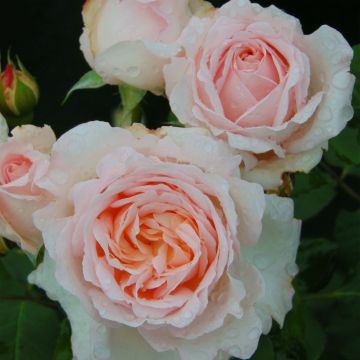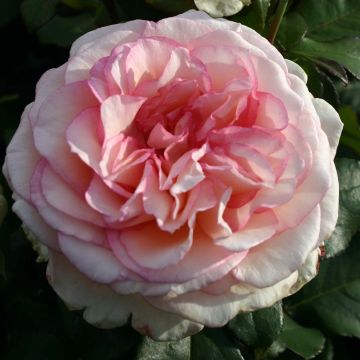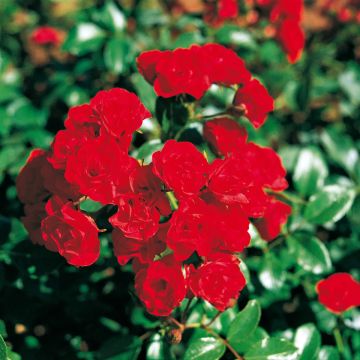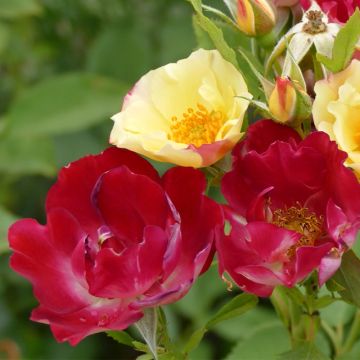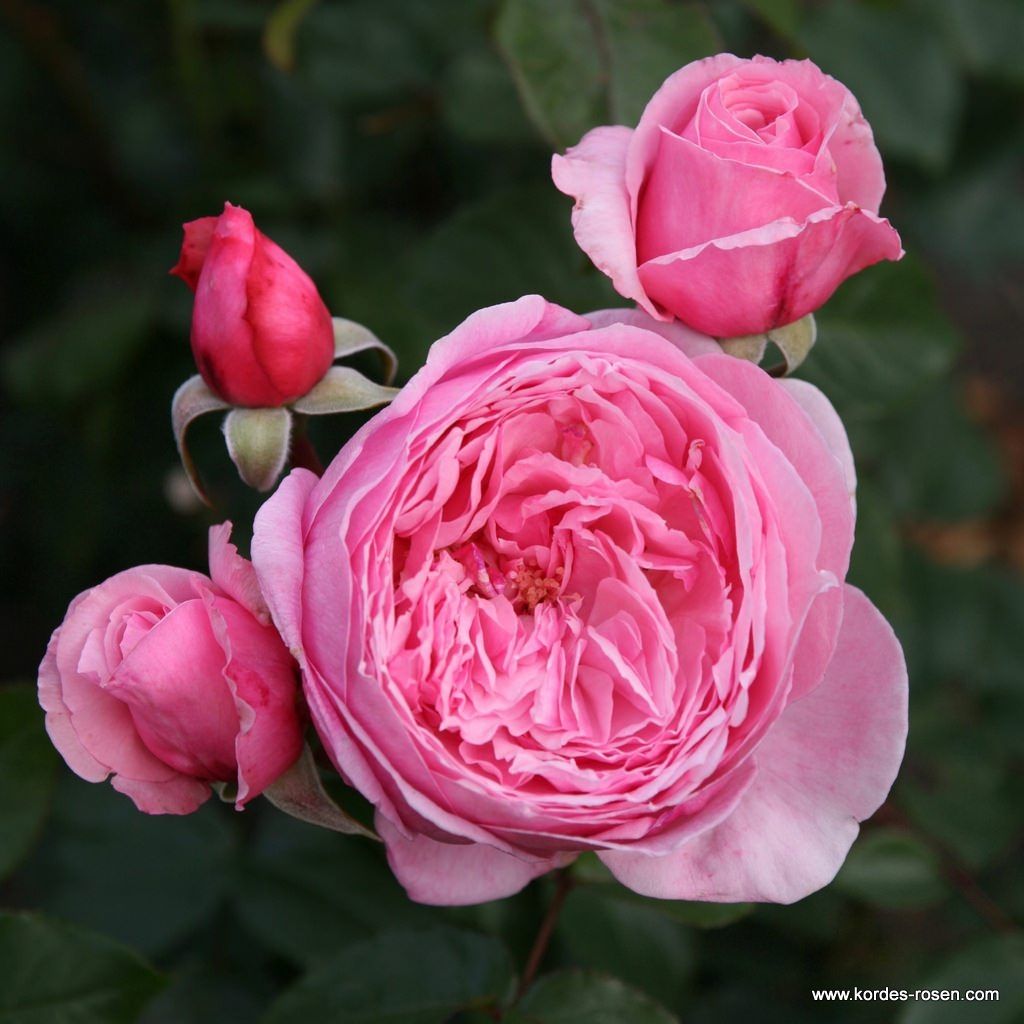

Rosa 'Kiss me Kate' Klettermaxe -Climbing Rose
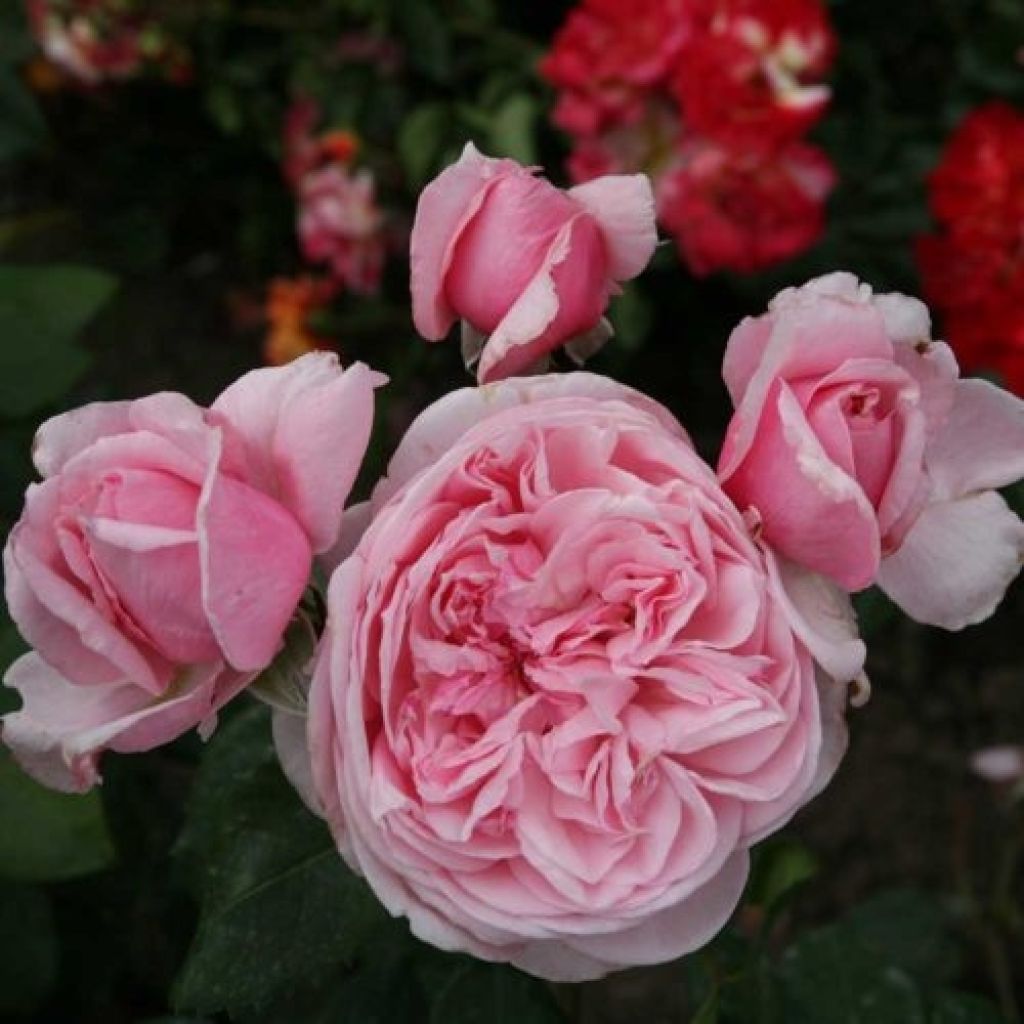

Rosa 'Kiss me Kate' Klettermaxe -Climbing Rose
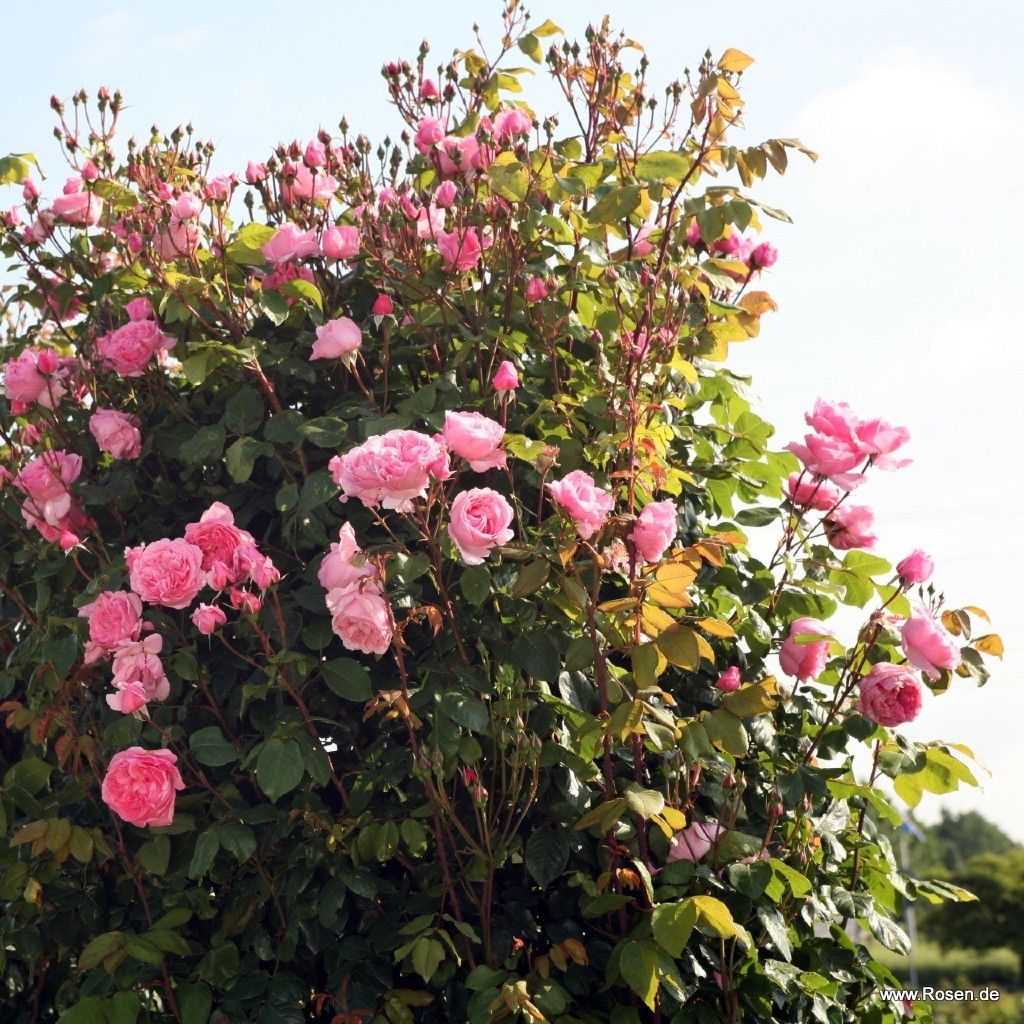

Rosa 'Kiss me Kate' Klettermaxe -Climbing Rose
Rosa 'Kiss me Kate' Klettermaxe -Climbing Rose
Rosa Parfuma® Kiss me Kate® Klettermaxe ®
Klettermaxe Rose
Beautiful rose bush in the making, can't wait to discover its fragrance—thank you for the careful preparation.
Nath44, 22/06/2025
Special offer!
Receive a €20 voucher for any order over €90 (excluding delivery costs, credit notes, and plastic-free options)!
1- Add your favorite plants to your cart.
2- Once you have reached €90, confirm your order (you can even choose the delivery date!).
3- As soon as your order is shipped, you will receive an email containing your voucher code, valid for 3 months (90 days).
Your voucher is unique and can only be used once, for any order with a minimum value of €20, excluding delivery costs.
Can be combined with other current offers, non-divisible and non-refundable.
Home or relay delivery (depending on size and destination)
Schedule delivery date,
and select date in basket
This plant carries a 6 months recovery warranty
More information
We guarantee the quality of our plants for a full growing cycle, and will replace at our expense any plant that fails to recover under normal climatic and planting conditions.
Description
The 'Kiss Me Kate' climbing rose is a beautiful new addition to the Parfuma rose series developed in Germany by the rose breeder Kordes. This rose has a yesteryear charm, combined with the repeat-flowering capabilities of modern roses and excellent disease resistance. Its large, fully double corollas in a soft pink shade are delicately scented and nostalgically charming. Choose this rose for its generosity and complex fragrance dominated by citrus and fruit notes. It will climb romantic arches and trellises in just a few years or fill out a large flowering hedge.
This Kiss Me Kate rose is a recent introduction launched in the European market in 2016. This fantastic modern hybrid represents the patient work and soulless selection of the Kordes nursery, which successfully brought fragrance to beautiful roses carried by healthy bushes, the Parfuma roses.
With its climbing habit, 'Kiss Me Kate' will reach an average height of 2m (7ft) with a spread of 1m (3ft), depending on growing conditions. Its long stems are covered in numerous thorns and have glossy medium-green foliage. The flowers appear in June-July, followed by successive waves until October. They emerge as bright pink buds on short shoots from the second year. They open into slightly turbinate flowers and then, in the style of English roses, into globular cups before fully blooming into large, very double cups measuring 9cm (4in) in diameter. The petals are pleated old-fashioned, turning pale pink at the edges. Together, they create a beautiful bouquet effect in a very tender shade of pink. They emit a fairly pronounced and exquisite fragrance, described as follows: "With soft and floral aspects, this rose presents a top note of freshly grated lemon zest. The aroma of a green apple complements this citrus note. A mature, slightly soapy aspect of the rose dominates the heart note, which is sometimes mixed with a touch of sweet raspberry. This aroma is underlined by a discreet and spicy impression of myrrh in the base note" (ref. Kordes Rosen).
'Kiss Me Kate' is a rose that will appeal to lovers of old-fashioned roses and romantic gardens where the fragrance of flowers reigns. Like other large roses, such as 'Mme Caroline Testout', 'Rose de Mai', or 'Penny Lane' with which it pairs so well, it is incomparable for giving a touch of abandonment planted above overly strict flowerbeds. It is an ideal companion for an old fruit tree, a small pillar, and charming cabins. Trained on an arch near the terrace, it will create a poetic and fragrant passage. When allowed to grow freely without pruning or training on a support, it forms a lovely bush that can be placed, for example, at the back of a perennial flowerbed or in a large flowering hedge. Pink roses go well with white or mauve lilacs and buddleias ranging from white to purple. Clematis with blue flowers (C.jackmanii, Arabella, Blue Light) are also good companions for their plump flowers.
Report an error about the product description
Rosa 'Kiss me Kate' Klettermaxe -Climbing Rose in pictures
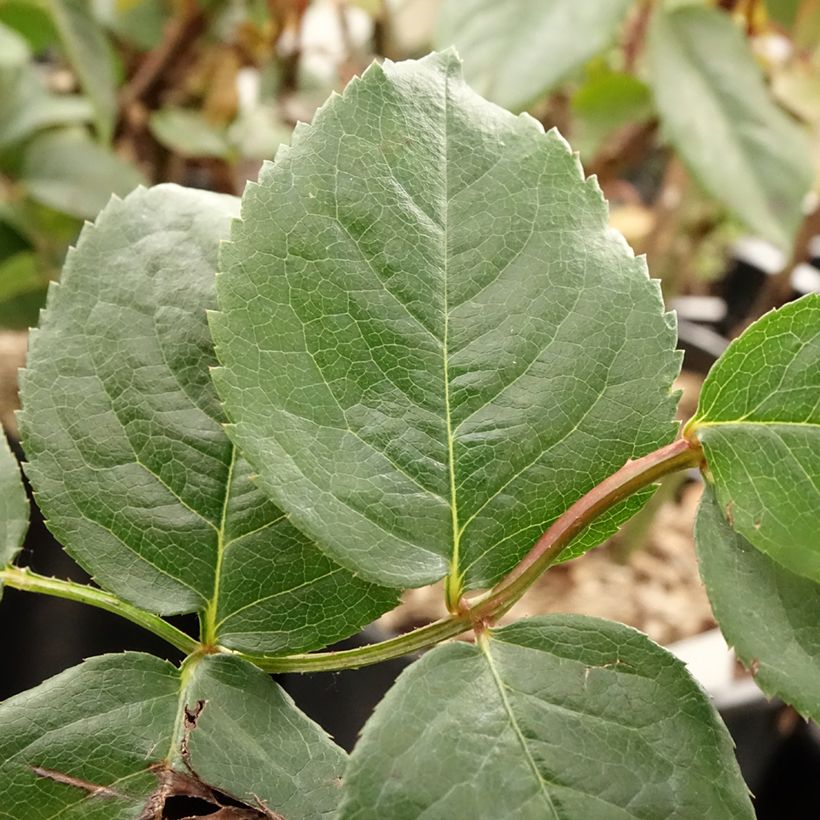

Plant habit
Flowering
Foliage
Botanical data
Rosa
Parfuma® Kiss me Kate® Klettermaxe ®
Rosaceae
Klettermaxe Rose
Cultivar or hybrid
Planting and care
If you plan to plant a 'Kiss Me Kate' rose, choose a spot with plenty of sunlight and well-drained soil. Parfuma roses can adapt to most gardens, but they do not like too much limestone. To plant the rose, crumble the soil and add an amendment like blood, fish, and bone at the bottom of the hole. After planting, water the rose generously to remove any air pockets. Water regularly during the first few weeks to ensure that the rose roots well.
Pruning modern climbing roses is necessary for their flowering. In winter, shorten the branches to 3-5 buds above the ground, and remove dead wood and unsightly branches. Choose an outward-facing bud for a more elegant shape. Remove faded flowers as they appear, which stimulates new bud growth.
If you plant a climbing rose near a living tree, keep in mind that the rose's root system will compete with the established tree's root system. To control watering, plant the rose in a large container with a perforated bottom at the tree's base. The tree's roots will not penetrate the container for at least a year. After that, you can remove the container without disturbing the rose's root system. The rose will be more resistant since it will have had enough time to develop its root system deeply.
Planting period
Intended location
Care
-
, onOrder confirmed
Reply from on Promesse de fleurs
Similar products
Haven't found what you were looking for?
Hardiness is the lowest winter temperature a plant can endure without suffering serious damage or even dying. However, hardiness is affected by location (a sheltered area, such as a patio), protection (winter cover) and soil type (hardiness is improved by well-drained soil).

Photo Sharing Terms & Conditions
In order to encourage gardeners to interact and share their experiences, Promesse de fleurs offers various media enabling content to be uploaded onto its Site - in particular via the ‘Photo sharing’ module.
The User agrees to refrain from:
- Posting any content that is illegal, prejudicial, insulting, racist, inciteful to hatred, revisionist, contrary to public decency, that infringes on privacy or on the privacy rights of third parties, in particular the publicity rights of persons and goods, intellectual property rights, or the right to privacy.
- Submitting content on behalf of a third party;
- Impersonate the identity of a third party and/or publish any personal information about a third party;
In general, the User undertakes to refrain from any unethical behaviour.
All Content (in particular text, comments, files, images, photos, videos, creative works, etc.), which may be subject to property or intellectual property rights, image or other private rights, shall remain the property of the User, subject to the limited rights granted by the terms of the licence granted by Promesse de fleurs as stated below. Users are at liberty to publish or not to publish such Content on the Site, notably via the ‘Photo Sharing’ facility, and accept that this Content shall be made public and freely accessible, notably on the Internet.
Users further acknowledge, undertake to have ,and guarantee that they hold all necessary rights and permissions to publish such material on the Site, in particular with regard to the legislation in force pertaining to any privacy, property, intellectual property, image, or contractual rights, or rights of any other nature. By publishing such Content on the Site, Users acknowledge accepting full liability as publishers of the Content within the meaning of the law, and grant Promesse de fleurs, free of charge, an inclusive, worldwide licence for the said Content for the entire duration of its publication, including all reproduction, representation, up/downloading, displaying, performing, transmission, and storage rights.
Users also grant permission for their name to be linked to the Content and accept that this link may not always be made available.
By engaging in posting material, Users consent to their Content becoming automatically accessible on the Internet, in particular on other sites and/or blogs and/or web pages of the Promesse de fleurs site, including in particular social pages and the Promesse de fleurs catalogue.
Users may secure the removal of entrusted content free of charge by issuing a simple request via our contact form.
The flowering period indicated on our website applies to countries and regions located in USDA zone 8 (France, the United Kingdom, Ireland, the Netherlands, etc.)
It will vary according to where you live:
- In zones 9 to 10 (Italy, Spain, Greece, etc.), flowering will occur about 2 to 4 weeks earlier.
- In zones 6 to 7 (Germany, Poland, Slovenia, and lower mountainous regions), flowering will be delayed by 2 to 3 weeks.
- In zone 5 (Central Europe, Scandinavia), blooming will be delayed by 3 to 5 weeks.
In temperate climates, pruning of spring-flowering shrubs (forsythia, spireas, etc.) should be done just after flowering.
Pruning of summer-flowering shrubs (Indian Lilac, Perovskia, etc.) can be done in winter or spring.
In cold regions as well as with frost-sensitive plants, avoid pruning too early when severe frosts may still occur.
The planting period indicated on our website applies to countries and regions located in USDA zone 8 (France, United Kingdom, Ireland, Netherlands).
It will vary according to where you live:
- In Mediterranean zones (Marseille, Madrid, Milan, etc.), autumn and winter are the best planting periods.
- In continental zones (Strasbourg, Munich, Vienna, etc.), delay planting by 2 to 3 weeks in spring and bring it forward by 2 to 4 weeks in autumn.
- In mountainous regions (the Alps, Pyrenees, Carpathians, etc.), it is best to plant in late spring (May-June) or late summer (August-September).
The harvesting period indicated on our website applies to countries and regions in USDA zone 8 (France, England, Ireland, the Netherlands).
In colder areas (Scandinavia, Poland, Austria...) fruit and vegetable harvests are likely to be delayed by 3-4 weeks.
In warmer areas (Italy, Spain, Greece, etc.), harvesting will probably take place earlier, depending on weather conditions.
The sowing periods indicated on our website apply to countries and regions within USDA Zone 8 (France, UK, Ireland, Netherlands).
In colder areas (Scandinavia, Poland, Austria...), delay any outdoor sowing by 3-4 weeks, or sow under glass.
In warmer climes (Italy, Spain, Greece, etc.), bring outdoor sowing forward by a few weeks.































